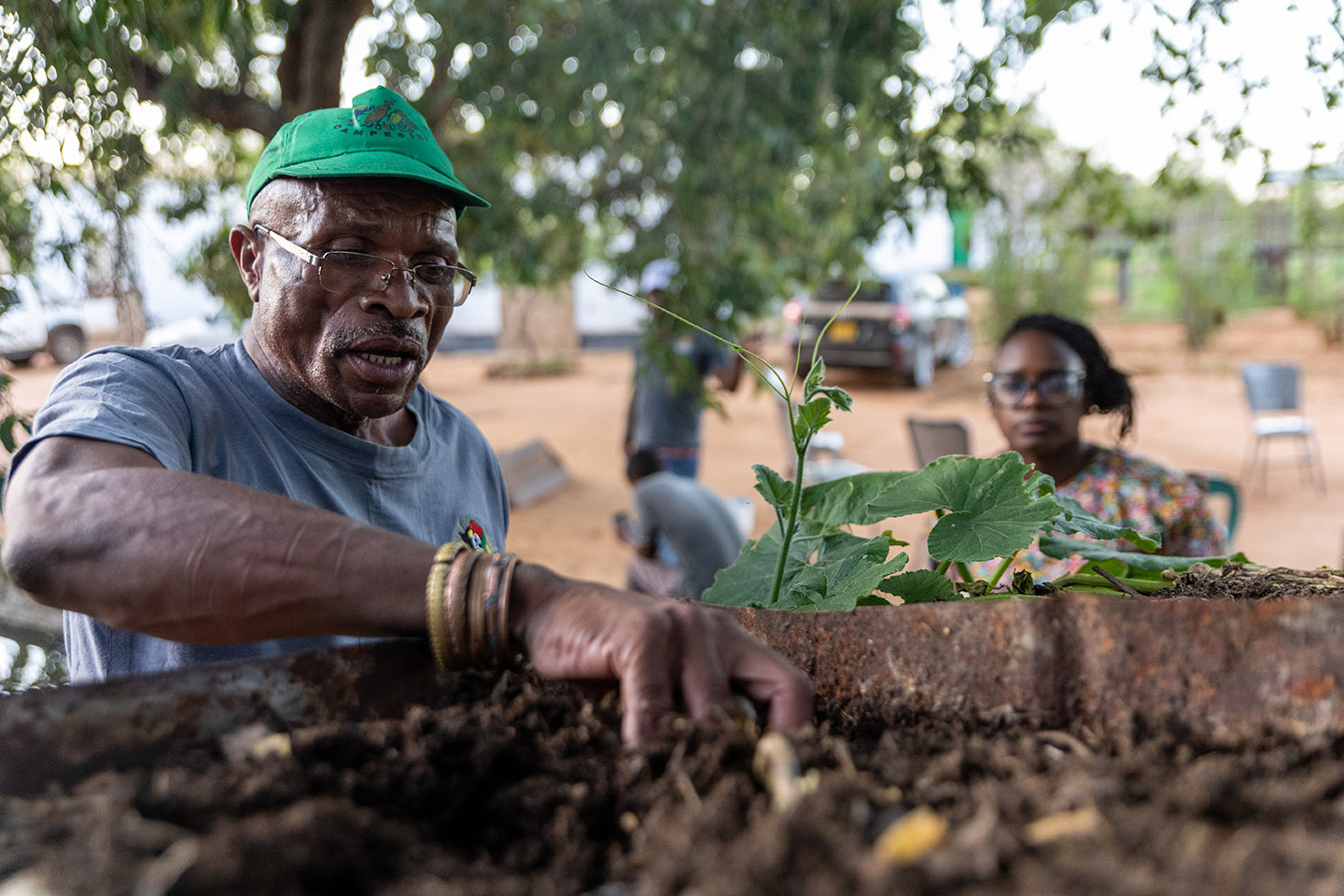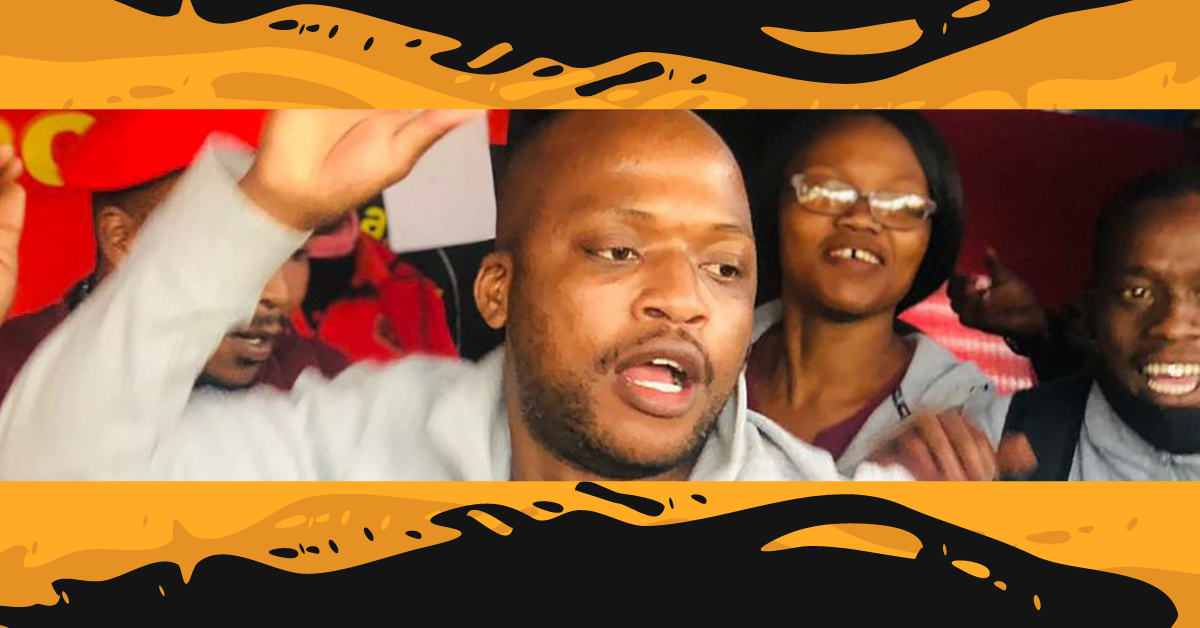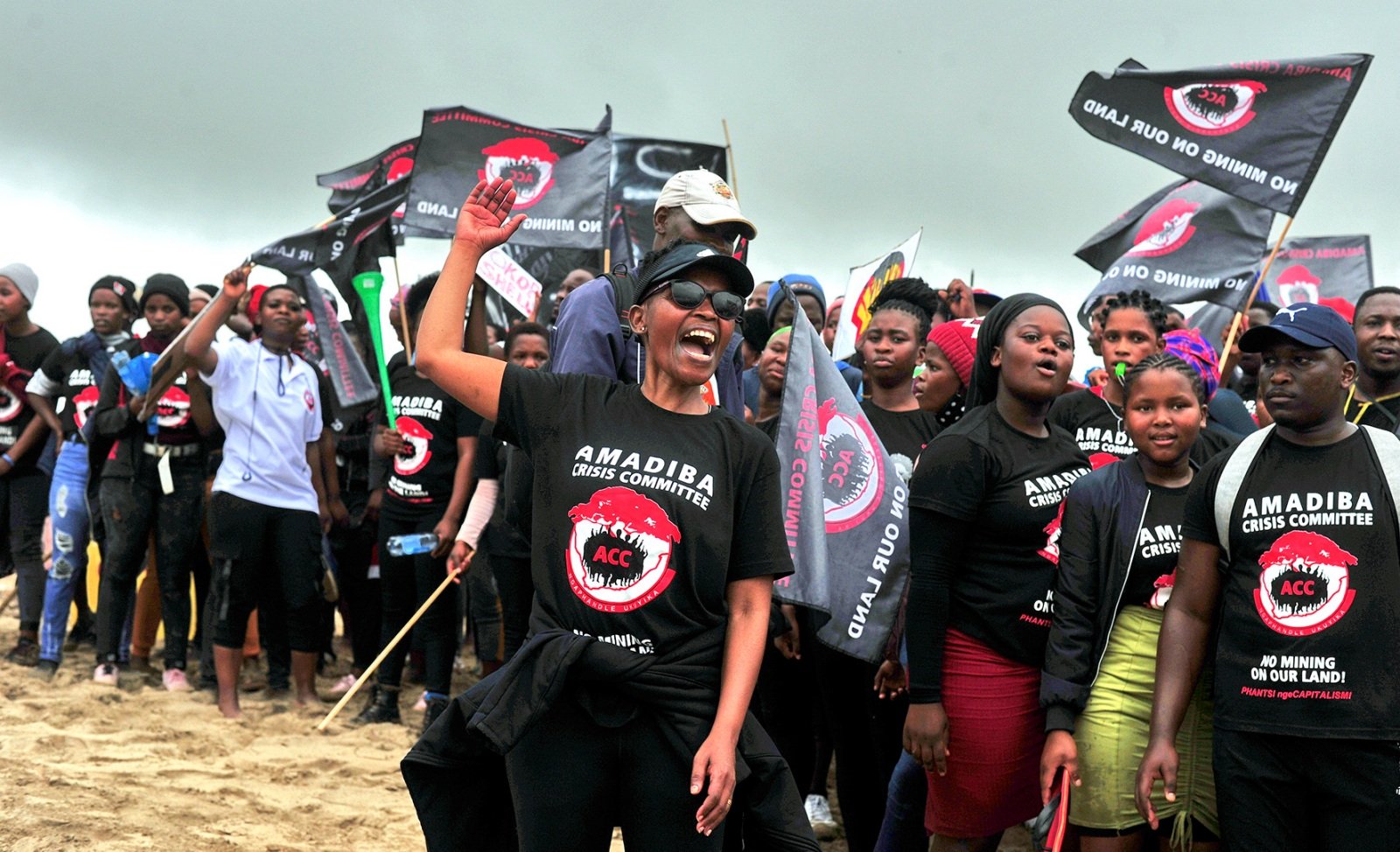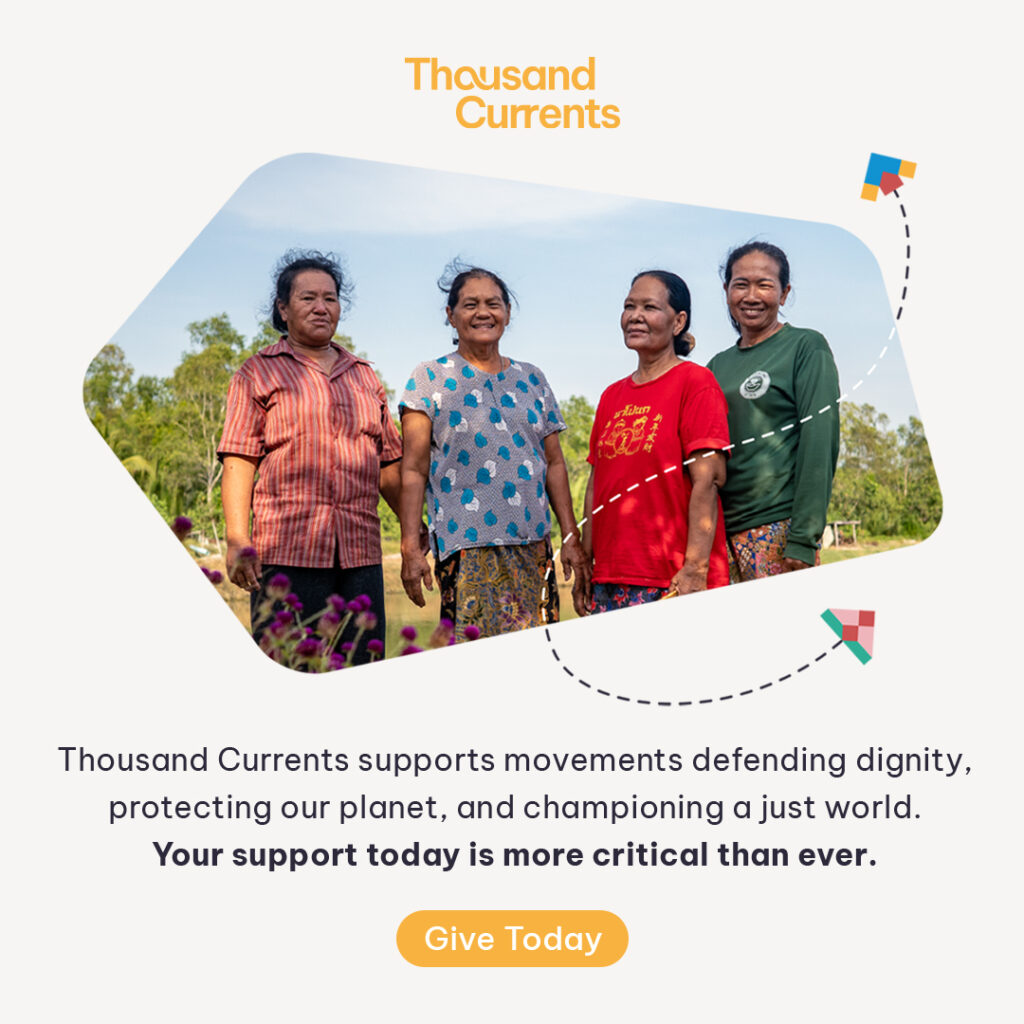Knowledge as Liberation
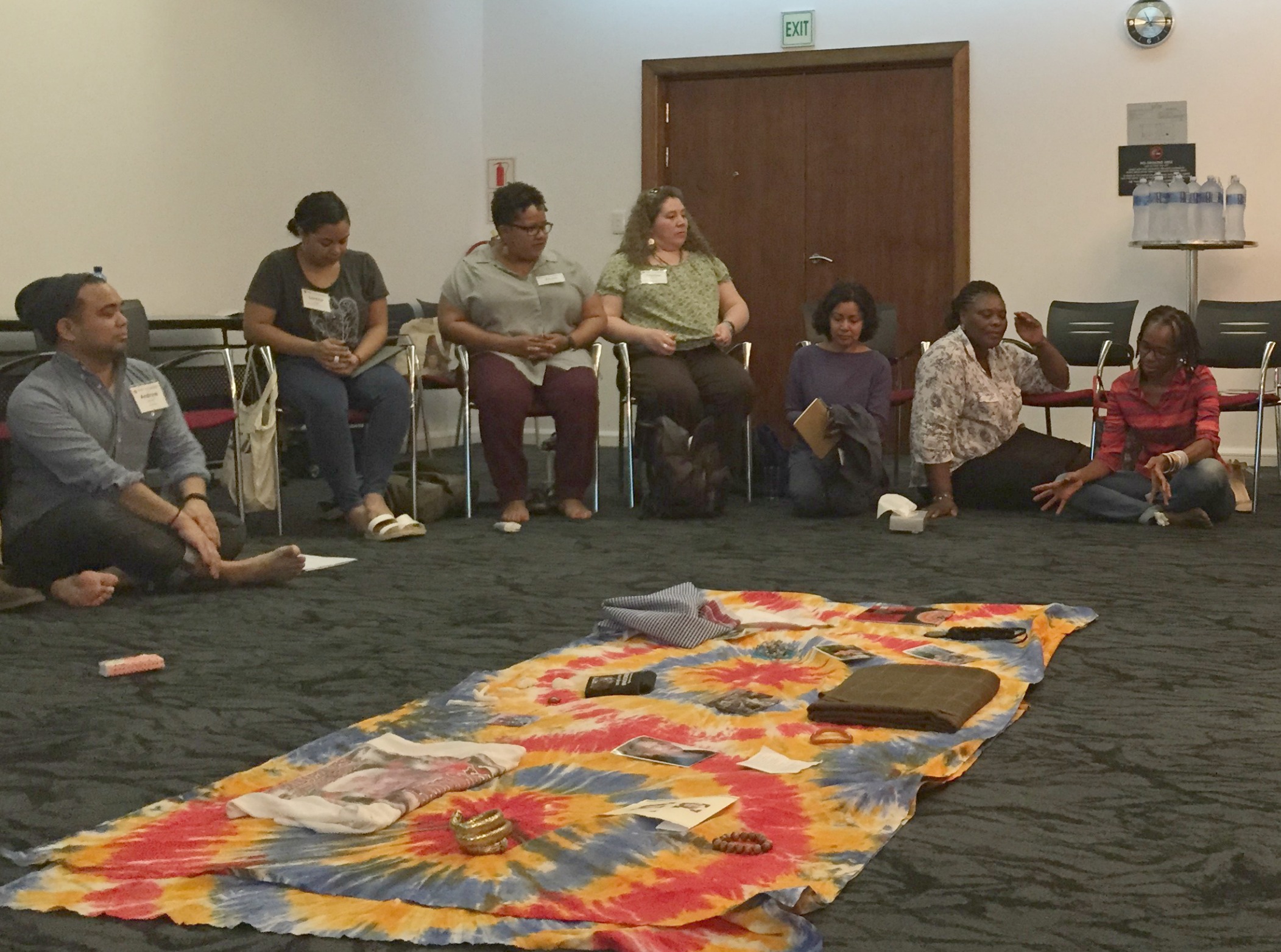
By Rajasvini Bhansali, former Thousand Currents Executive Director
Grassroots workers, community leaders, movement builders, network weavers, artists, farmers, and healers are holding up what the world needs – cultural and indigenous knowledge.
The creativity and imagination with which comrades in South Africa claim their own knowing inspired me greatly during a learning exchange between the Move to End Violence Movement Makers from the United States, Thousand Current’s South Africa movement partners, and many South African revolutionaries, artists and activists in early 2016. Even as their labor and expertise is disregarded, the act of producing knowledge – when all has been stolen, extracted, taken by force or under duress – is itself an act of resistance and defiance. Producing, lifting, reclaiming, and sharing this rooted and deep knowledge feels, sounds, and dances like a liberatory project.
Below are some insights shared about reclaiming knowledge:
Knowledge production is something to be claimed
Our experiences of oppression become internalized in such a way that we no longer believe that as third world people, women, queers, working class and poor peoples, people of color that our contributions have anything new to add to the political, economic, or cultural knowledge base that informs our world. The dehumanizing process of colonization removes us from our own “innate sense of knowing.”
“Knowledge Production is contested territory that we must claim,” says Mmatshilo Motsei, a poet, artist, gender activist and spiritual healer who founded Afrika Ikalafe and Agisanang Domestic Abuse Prevention and Training (ADAPT) in the Alexandria township outside of Johannesburg.
We forget that we have access to guidance, to ancestral knowledge, to our own lived wisdom burnished in the fire of experience and struggle. To claim this territory, then, is to claim our self-worth, power and creativity.
Knowledge production is subversive
Robben Island during the apartheid regime produced an intricate and ingenious communications and political education infrastructure created by its famous prisoners. The foremost goal of these forms of knowledge production was to ensure that prisoners built connection and solidarity with each other. The systems of education helped stand up to forces of divisiveness that the apartheid regime employed to keep them from organizing inside the walls. The other purpose was to export critical political strategies and ideas to the outside world.
From toilet paper to leaves, every thing the leaders had access to became a tool of knowledge production. It was the quality and dissemination of ideas that mattered more than the vehicle through which they were delivered.
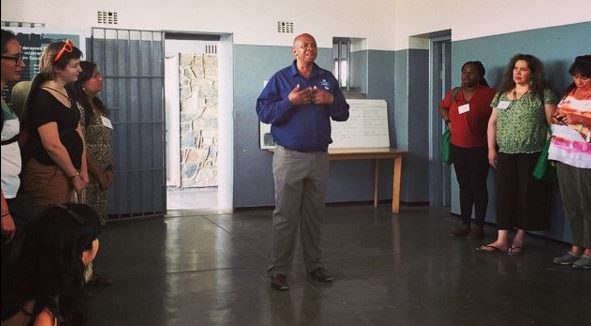
Former political prisoner Sparks Mlilwana leading a tour of Robben Island. Photo courtesy of Move to End Violence.
Agroecology is knowledge production
“My strength comes from mother earth. This land knows me and I know it,” explains Lumko Ningi, a founder of Tyisa Nabanye, a guerilla gardening initiative on the sloping hills of Signal Hill in Cape Town developed by youth associated with Surplus People Project. “Plants absorb our energy and release it back to us.”
The lush garden growing on what was once barren defense land says it all.
The young people are clear about food sovereignty as a key struggle of our times. Their desire to build a movement with open access to seed and permaculture knowledge is reclaiming power, land, and community.
“Caring for people means processing our own knowledge and sharing what we know,” says Lumko. “We might not end up winning the cause. The future is uncertain. But we are going to carry on. We will make this [garden] a paradise which cannot be destroyed.”
Every person’s experience is vital to knowledge production
In the process of healing herself from the brutality of sex trafficking, Grizelda Grootboom, a survivor tells her story. As she describes what she endured to us and in her memoir, Exit, she draws lessons and shares wisdom uniquely her own.
Grizelda has developed her own strategies for resilience not only for herself, but for many others in vulnerable circumstances such as herself. Thousand Currents partner, Whole World Women Association, also works to empower refugee women and children from all over the African continent in Cape Town to tell their own stories.
To acknowledge her agency and her horror is to give her experience its legitimate place in the knowledge production required to liberate women’s bodies from the scourge of labor and violence without consent.
Knowledge production needs comrades
“We learned politics…our rights and how to be a comrade, [not just an ally],” shares Shirley Gunn, a former anti-apartheid activist and director of the Human Rights Media Centre in Cape Town.
As Gunn explained this political education methodology as a part of the apartheid struggle, Gunn explained that white South Africans like herself would seek to dismantle their own notions of entitlement, constantly sharpen their political analysis, and seek to put their bodies and minds on the frontlines for the liberation of those most oppressed to become comrades.
How would the United States change in its moment of resurgence of heinous acts of white supremacy if all anti-racist whites claimed their role as comrades?
“Solidarity is a very important part of our struggle. It scared the racist regime out of their wits,” says Gunn.
Knowledge production has rigor.
Our academic and philanthropic institutions would have us believe that the dispossessed have lost language, analysis, or the capacity to produce knowledge. The opposite is true, as history has shown, over and over again that the observation, reflection, dialogue and sense-making processes of indigenous cultures akin to scientific methods.
But institutions can resource and create opportunities for research and knowledge production to be led by the people in the trenches and to give it the value and recognition it rightfully deserves.
“Black women’s bodies have been sites that research has been enacted upon, but now we wish to lead our own research,” says Sibongile Ndashe, a feminist and public interest lawyer and founder of the Initiative for Strategic Litigation in Africa.
Experimentation and exchange is key to knowledge production
Learning exchanges help surface the lessons learned through experimentation. The Agroecology Fund brought together agroecology practitioners, donors, activists and policy makers from around the world in Uganda in May 2016. There too it became evident that the approach and process of agroecology works because it converges scientific and indigenous knowledge systems with people’s lived experiences of what works in the soil.
But the exchange also highlighted what works in transforming peoples’ souls. Agroecology offers not just a set of food and fiber production techniques, but an ethos of how to steward the earth, and a foundation for a just transition towards healthy and equitable rural and urban communities.
Knowledge production centered in the lived experiences of people considered to be at the margins of society will shatter all our preconceived notions. This is an experience we try to offer change makers through The Academy. This is necessary so that a new worldview can be created.
Indeed only then will liberation be possible.
Related Stories
